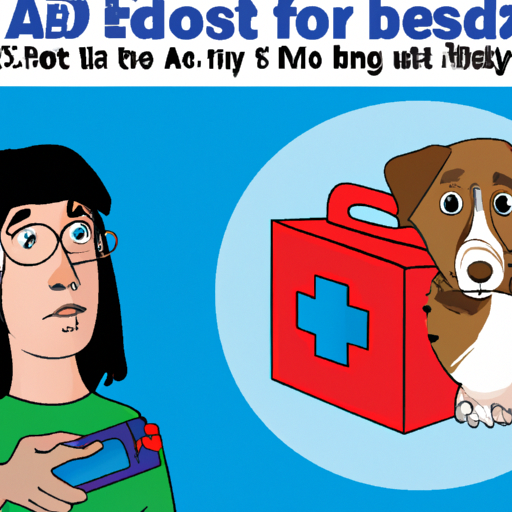As a dog caregiver, there’s nothing more alarming than seeing your furry friend in distress. One common concern is a dog’s nosebleed, which, while usually not life-threatening, can be quite distressing for both the dog and the caregiver. This comprehensive guide will help you understand why nosebleeds occur and what you can do to help your pet.
Understanding the Causes of Your Dog’s Nose Bleed
Before we delve into how to stop a dog’s nose bleed, it’s essential to understand the potential causes. A nose bleed, or epistaxis, in dogs can be a result of several factors:
- Trauma: An injury to the snout or skull can cause a nose bleed.
- Foreign objects: If your dog sniffs up a foreign object, it can cause irritation or injury leading to a nose bleed.
- Medical conditions: Certain diseases like cancer, blood clotting disorders or infectious diseases can also lead to nose bleeds in dogs.
How to Stop the Bleed
When your dog’s nose starts bleeding, the first instinct may be panic. However, it’s crucial for you to remain calm and follow these steps:
- Keep calm and reassure your dog: Your dog can sense your anxiety. Speak in a soothing voice and pet your dog gently to keep them calm.
- Apply a cold compress: Use a clean cloth or towel soaked in cold water, apply it gently to your dog’s nose.
- Seek veterinary attention: If the bleeding continues for more than a few minutes, seek immediate veterinary attention.
Understanding the Treatment Options
Your vet will likely perform a variety of tests to determine the cause of your dog’s nose bleed. Treatment options will depend on the underlying cause but may include:
- Removal of foreign objects
- Medications to treat underlying conditions
- Surgery in severe cases
Preventing Future Nose Bleeds
Prevention is always better than cure. Here are some steps you can take to prevent future nose bleeds in your dog:
- Keep your dog’s environment free from small objects that they may sniff up.
- Regularly check your dog’s nose for any signs of injury.
- Regular veterinary check-ups can also help identify any potential health issues early.
Frequently Asked Questions
Q: Are dog nose bleeds common?
A: Yes, nose bleeds in dogs are quite common and can often be treated effectively.
Q: When should I worry about my dog’s nose bleed?
A: If the bleeding continues for more than a few minutes, or if your dog appears to be in distress, seek veterinary attention immediately.
Q: Can I prevent my dog from having a nose bleed?
A: While you can’t prevent all nose bleeds, regular veterinary check-ups and keeping your dog’s environment safe can reduce the risk.
By understanding the causes, treatment options, and prevention methods for nosebleeds in dogs, you can ensure your furry friend stays healthy and happy.



